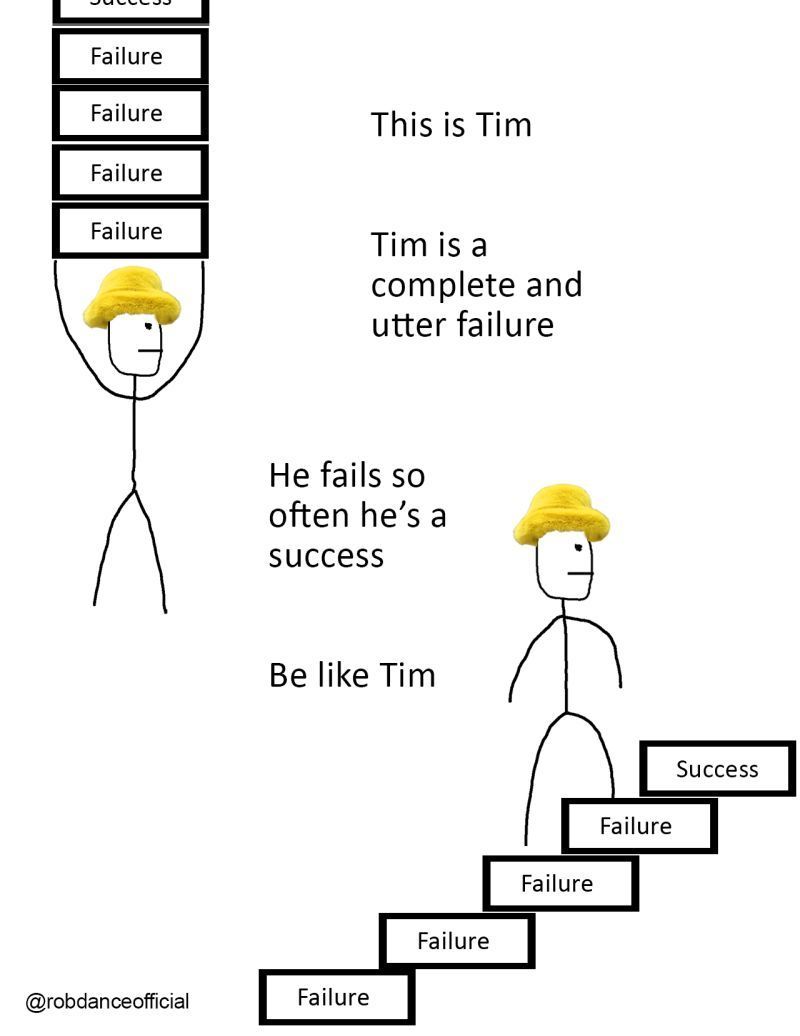FAILING TO FAIL, FAILING TO WIN
the path to winning is paved with failures.
What to expect...
Tone: outside voice
Snark level: low
Other special provisions: i'd call this an opinion piece, but i know i'm right about it.
too many of us think we're opposed to failure. but the truth is that each of us is participating in the largest failure of all time, just be being. because at some point, we will all fail to be.
that's right—at some point, each and every one of us will die. we know how the story ends, yet every second we're here on this earth, we're writing that story.
it's better to focus not on the end, but on that bulk in the middle. that second act in literary terms—ya know, the real meat of the story.
don't focus on the results—focus instead on how hard you tried. that's basically the advice I gave my son as he worried about an upcoming soccer tryout: you can't control whether you make the team; you can control only your effort and attitude. that's true in soccer, outside soccer, and everywhere in between.
such is life.
failure itself can't be avoided. venture capitalists don't run from failure. they don't expect every investment to be a winner. they know the vast majority will end up turds. but they hope to hit one or two homeruns to stay in the lead.
and that's how we should live too: by accepting that failure will happen but hope we win enough times to make up for our losses.
does that mean we should run toward every failure with arms wide open?
not quite.
one of the keys to success in everyday life is learning how to take calculated risks. we can't eliminate risk, but we can hedge our bets by finding low-risk, high-reward situations. and we can find more of these situations by coming to terms with the worst-case scenario.
what's the worst that can happen?
getting comfortable with failure can be easier if you can get comfortable with the worst-case scenario.
instead of hoping a public speaking engagement will cause you to go viral and lead to more professional opportunities than you can comprehend, maybe you should instead seek the failures that will make you better. maybe you'll learn something that will make you a better speaker in the long run. the sooner you get your first failure out of the way, the sooner you can start improving.
and maybe, just maybe, if you change your mindset and your attitude about failure, you can start looking for opportunities to fail rather than running from failure. the easiest way to reduce failure is to keep playing the same old games you always win. but are these immediate wins serving you in the long term? might they be stopping you from winning bigger further down the road?
just something to think about
(also, don't just take it from me.)

